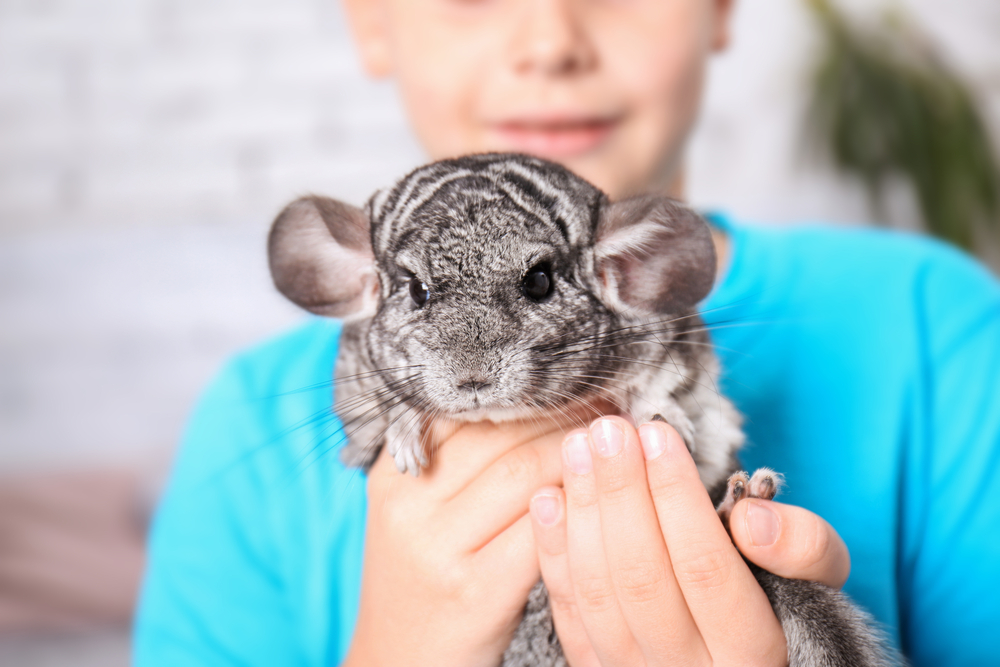Exotic Pets: How to Care for Some of the Most Unique Pets

Rodent and Small Mammal Care
Rodents and small mammals can make great pets if they are properly cared for. Common exotic rodents and small mammals include hedgehogs, sugar gliders, ferrets, and chinchillas. Specifically designed habitats are available for many of these animals that will keep them safe and secure in your home. Owners will need to make sure that these habitats stay secure and clean. Most rodents need nesting materials, which can be purchased at reputable stores. Nesting material that separates easily into thin strands (cotton, wool, fluffy bedding products, etc.) should not be used. Rodents often enjoy having things to climb on and through for entertainment as well. Note that some of these animals are nocturnal, so diligent research on the right rodent or small mammal for your lifestyle is necessary!
It is important that owners of small mammals and rodents understand the proper diet for your specific pet. Many of these animals require a special diet that contains all of the nutrients needed to keep the animal healthy. Improper diet can lead to numerous health issues, so a consultation with an exotic animal specialist should be considered for anyone who owns an exotic pet.
Reptile and Amphibian Care
Reptiles and amphibians require very special care and are not beginner pets. Before considering a reptile or amphibian, you should know that many species will require specific lighting and climate, which necessitates specialty habitats with humidity and temperature controls. These species also need a very specific diet, such as small mammals or insects, which should be discussed with a specialist.
It is also important to note that some reptiles and amphibians can become quite large. Others can live to be very old, such as the tortoise. Additionally, some species can be harmful to humans and other animals if handled incorrectly.
Bird Care
Just like with reptiles and amphibians, birds need highly advanced, species-specific care, and are not appropriate for inexperienced pet owners. It’s important that potential bird owners are aware of what a pet of this nature will need. A parrot is likely to be loud, messy, and destructive, for example.
Birds typically live in large cages with places to perch. They are intelligent animals and will need toys to keep them occupied. Rotating toys to keep your bird from getting bored – yes, birds get bored! – is also important, as is making sure the toys you get are appropriate for the species of bird you own.
In the wild, parrots eat nuts, fruits, berries, seeds, and other vegetation. There are many retail options for bird food, but the amount and type your bird will need can be hard to determine. Working with an avian veterinary specialist can help determine what diet your bird should have, and in what amounts. Birds who are given inappropriate diets can become very sick, or end up overweight (or underweight), just like in people.
What to Do Before Bringing an Exotic Pet into Your Home
Remember that it isn’t legal to own every exotic animal in every state – and even if it is legal to own a specific type of exotic pet in your area, does not mean that you should! Exotic animals and birds need owners with the knowledge, resources, and available time to ensure they are happy and healthy. If you are considering an exotic pet, make sure that there are no laws prohibiting ownership of the animal you are considering. You will also need to consider the safety of the members of your household before getting an exotic pet.
Exotic animals are not the kind of domesticated pets that cats and dogs are. These animals are typically great at escaping enclosures, which means that potential owners need to be diligent about housing their pets. It can also be difficult for exotic pet owners to board or find someone to provide care for their pets when they are away.
If you bring an exotic pet into your home illegally, you could be forced to either give your pet up to a sanctuary or have it euthanized. Additionally, if you aren’t prepared to care for an exotic animal in the way it needs, you could cause illness or injury that is expensive to treat, or, in some cases, can’t be treated.
Some exotic animals live very long lives. Parrots and tortoises are known for living as long as humans, for example, and in some cases, even longer than humans! These are life-long pets that will need your care every day, and if they outlive you, they will need to be cared for by someone else.
If you live in the Houston area and need veterinary care for your exotic pet, contact GCVS today at 713-693-1111. Our avian and exotics team can provide specialized care for the unique creatures that many people like to have as pets.
